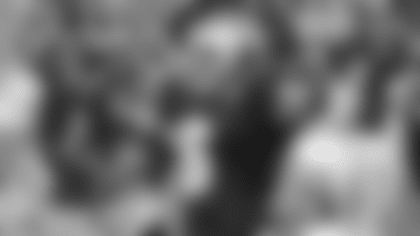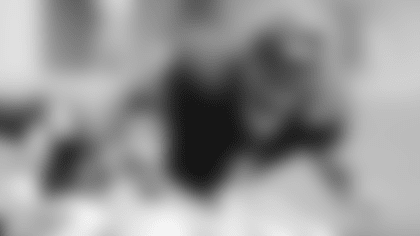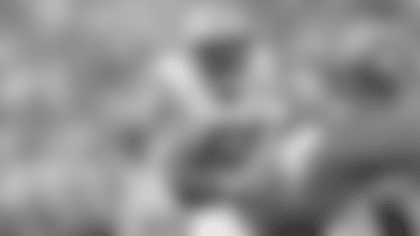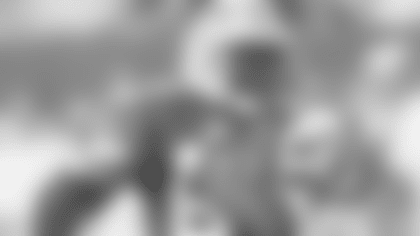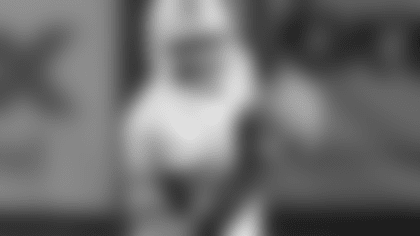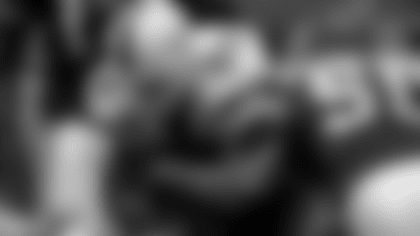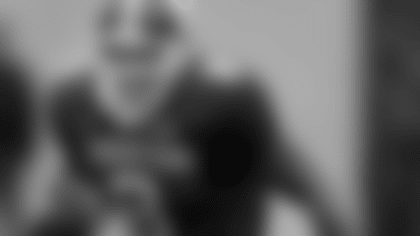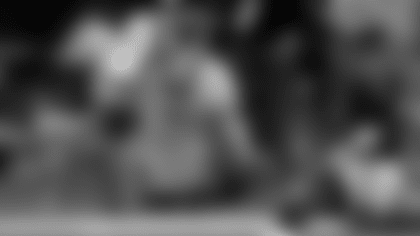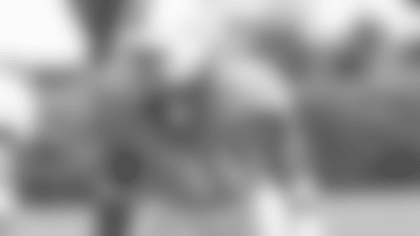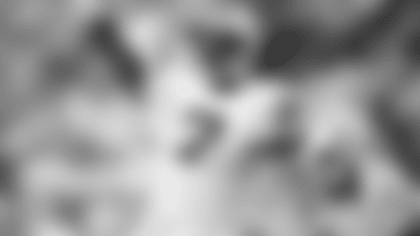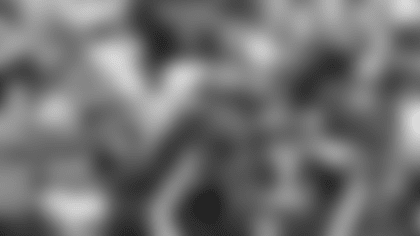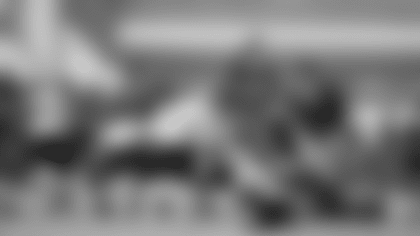Heading into Sunday night's nationally televised contest against the NFL's best team and highest scoring offense, the New England Patriots knew they had to pressure the Rams into mistakes. While they did that at times, in the end St. Louis simply had too much firepower for an upset-minded Patriots team that simply couldn't overcome its mistakes in a gut-wrenching 24-17 loss that seemed winnable.
"We missed too many opportunities and couldn't quite make enough plays," Head Coach Bill Belichick said in summation. "We gave them some problems and we made some plays on them, but we gave some up. I thought it was a pretty evenly played game, but it wasn't even; it was won by the Rams and they deserved it because they made more plays than we did."
The Patriots defensive game plan called for an array of blitzes to get after the high-flying offense and its ring leader, quarterback Kurt Warner, who completed 30-of-42 for 401 yards, three touchdowns and two interceptions. But the Rams, who have seen just about everything a defense can do, adjusted the timing of its offense to combat the pressure that clearly bothered them early on.
In fact, two early Warner interceptions — one by Terrell Buckley that was returned 52 yards for a touchdown and a second by Tedy Bruschi — set the Patriots up with a 10-7 lead after the Rams opened the scoring by turning a Patriots giveaway into the game's first seven points.
From that point on, the Rams adjusted well by turning to a quicker passing game to avoid the pressure while exploiting matchup advantages on the outside with two of the best receivers in football in Torry Holt and Isaac Bruce.
With the Patriots sending safeties after the quarterback early and often, the cornerbacks had to respect the Rams ability to hit the deep ball. With that in mind, they had to give Bruce, Holt and Ricky Proehl room to operate underneath, which the Rams were able to do with shorter drops and timing patterns to allow the receivers to catch the ball on the run.
Warner got into a rhythm, especially in the second half when he completed 14 of his 18 throws for 170 yards. But besides the philosophical change, the Rams also did a solid job picking up the blitzes as the game wore on.
"They did a great job against our pressure," rookie defensive tackle Richard Seymour said. "They just cluttered up the middle and used a lot of quick releases."
Lawyer Milloy, who was used as a blitzer on several occasions, thought the Rams adjusted well. "Against our pressure, they changed from seven-step drops to three-step drops and that was the difference. But I was dealing with a lot of linemen and backs and the ball was coming out quick."
The Rams ability to handle the blitz was a huge part of the game considering it was the linchpin of the Patriots defensive game plan. But allowing 24 points against St. Louis is good enough to give your team a chance to win.
The New England Patriots take on the St. Louis Rams at Foxboro Stadium on Sunday, November 18, 2001.
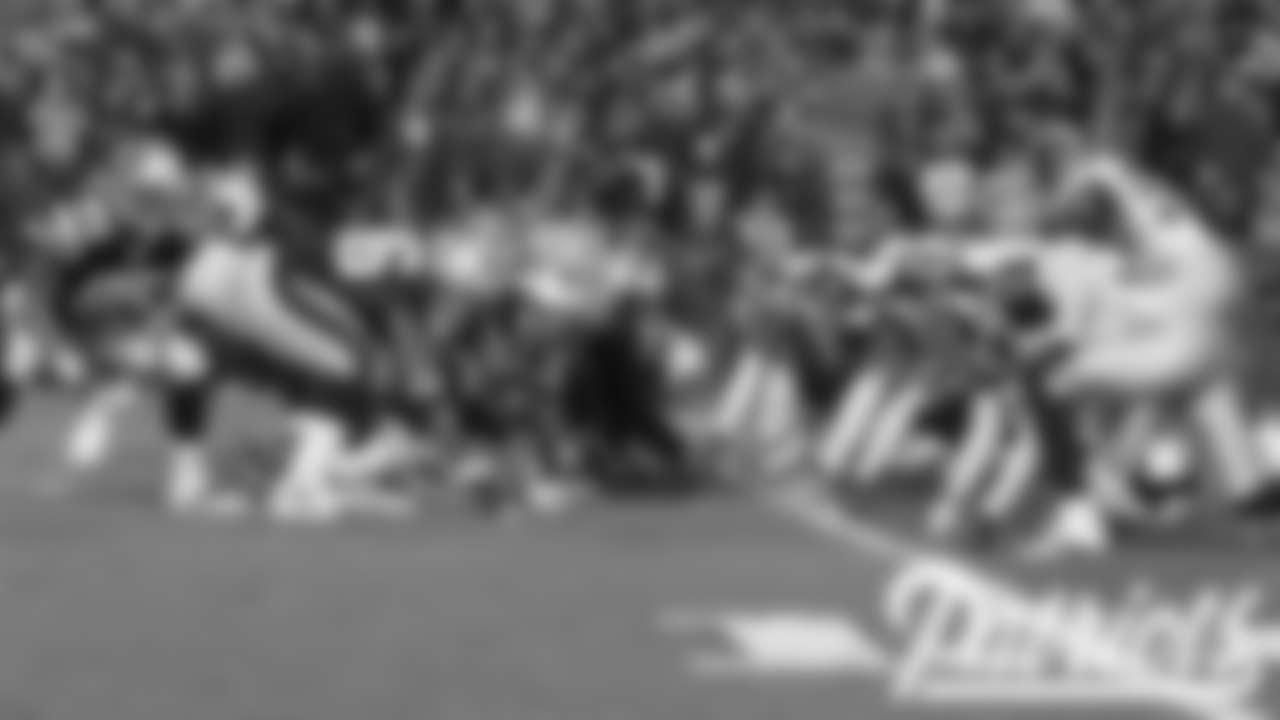
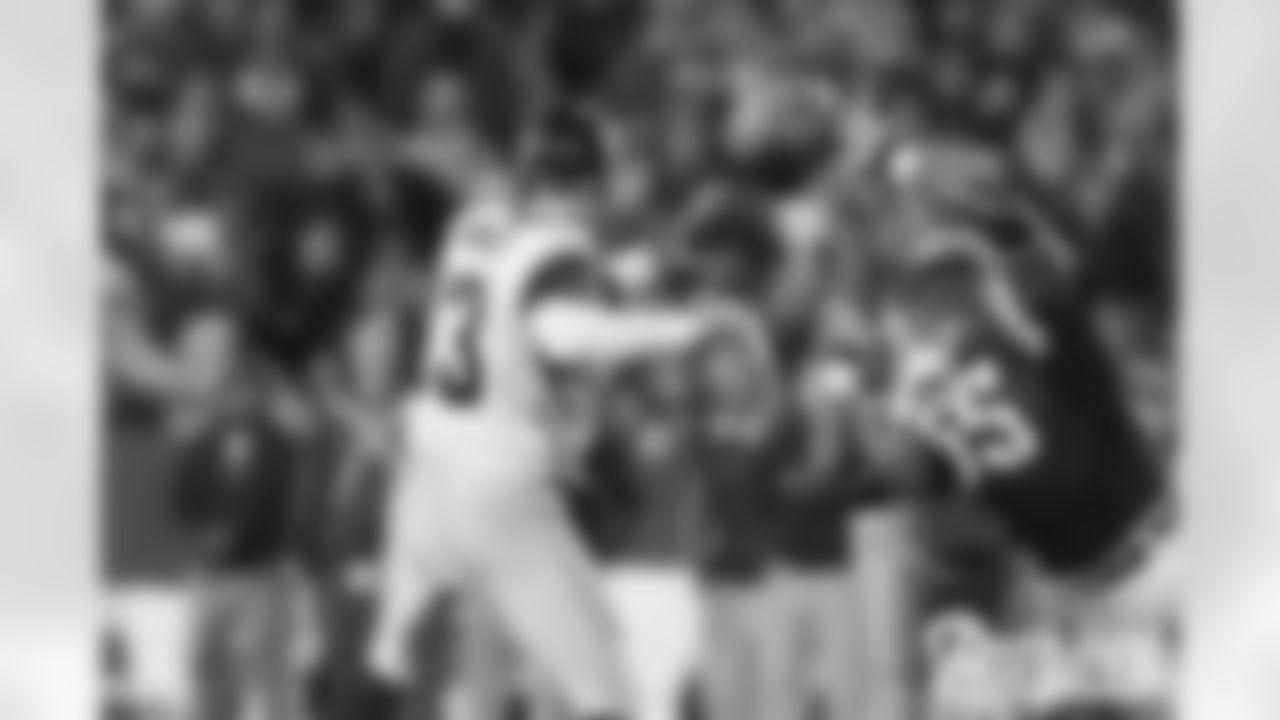
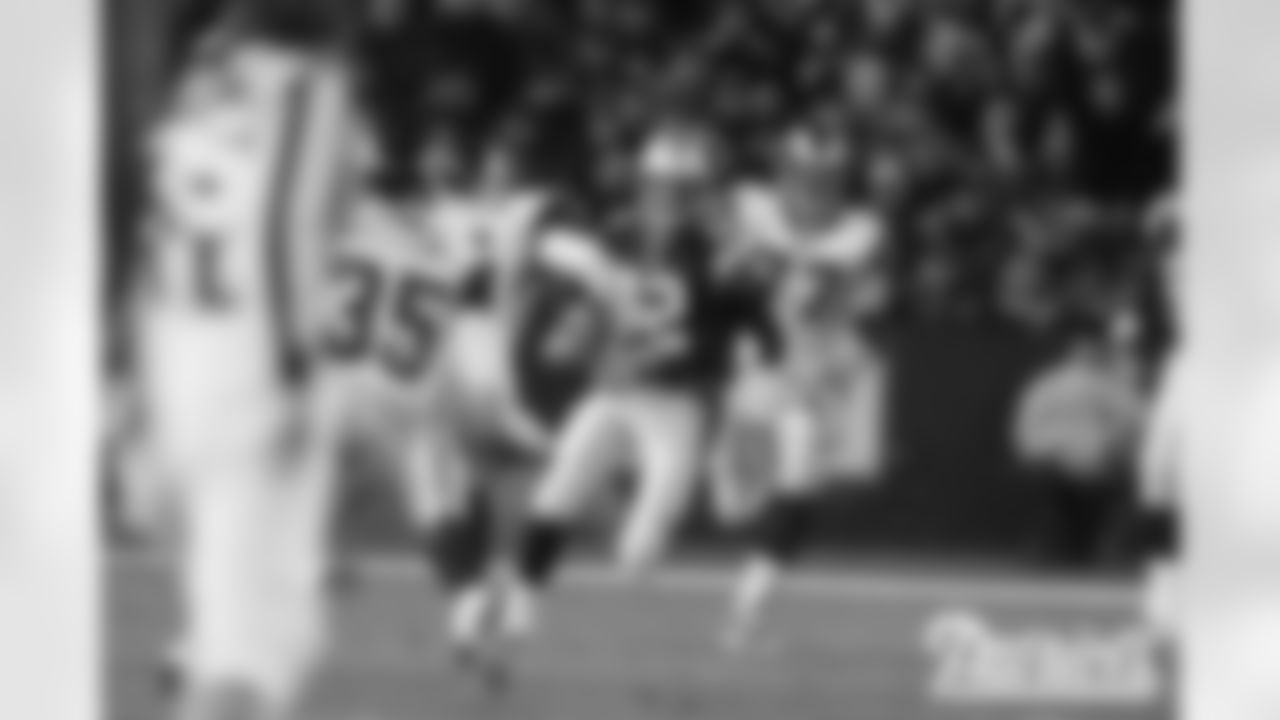
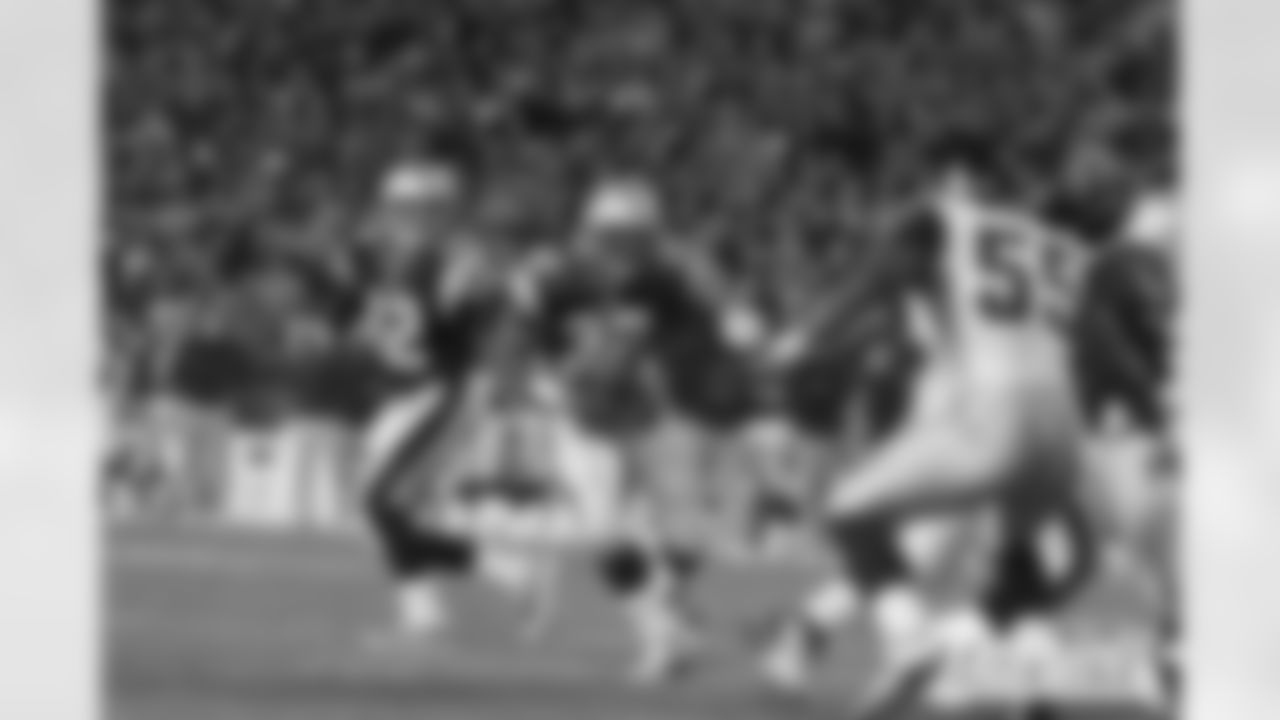
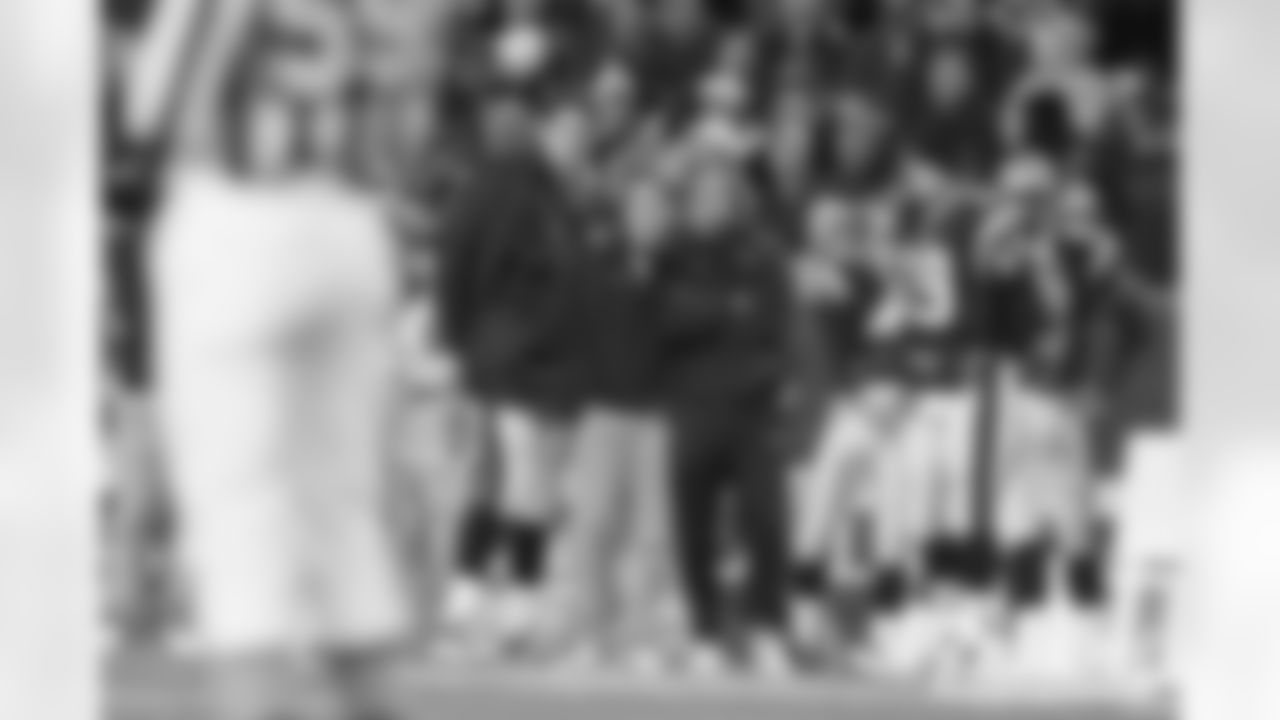
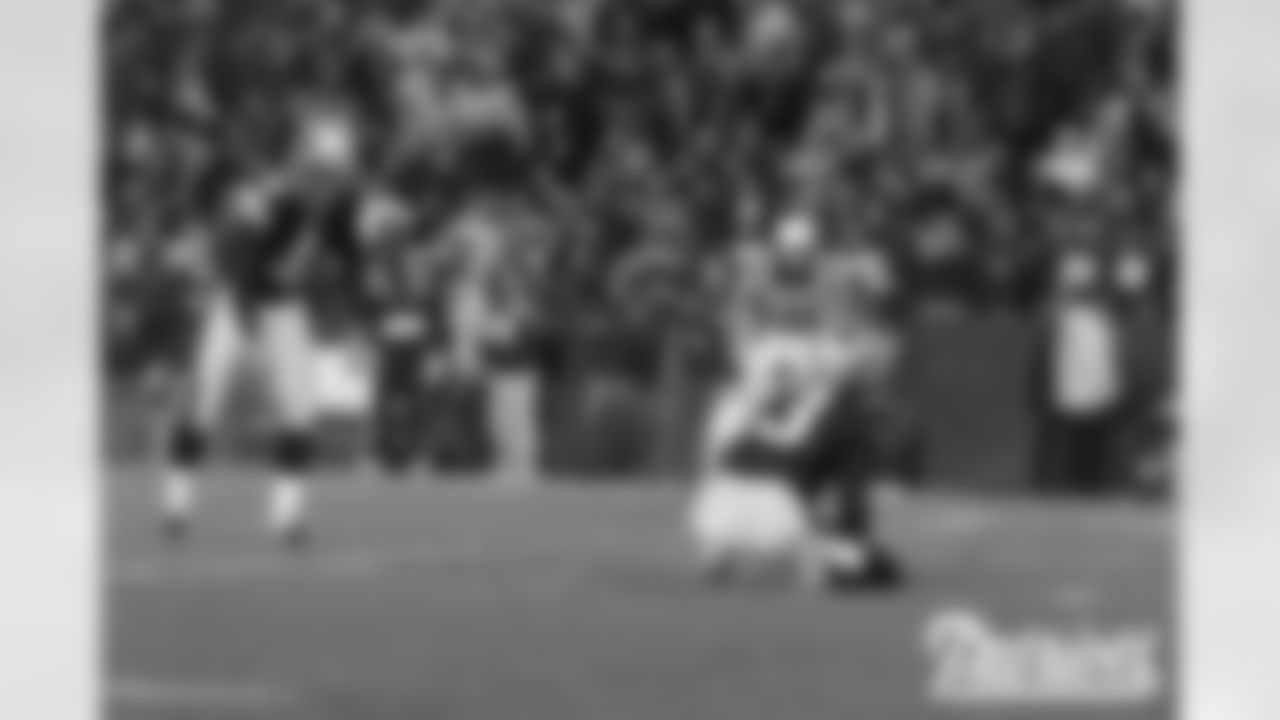
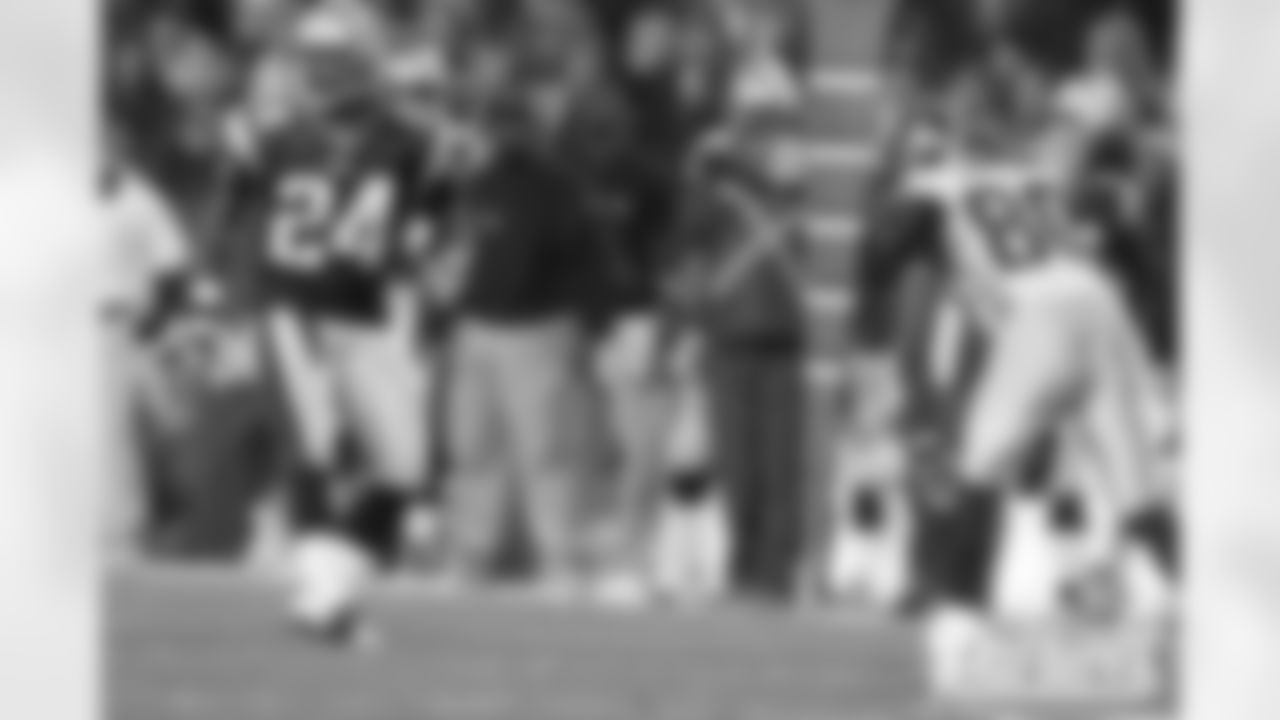
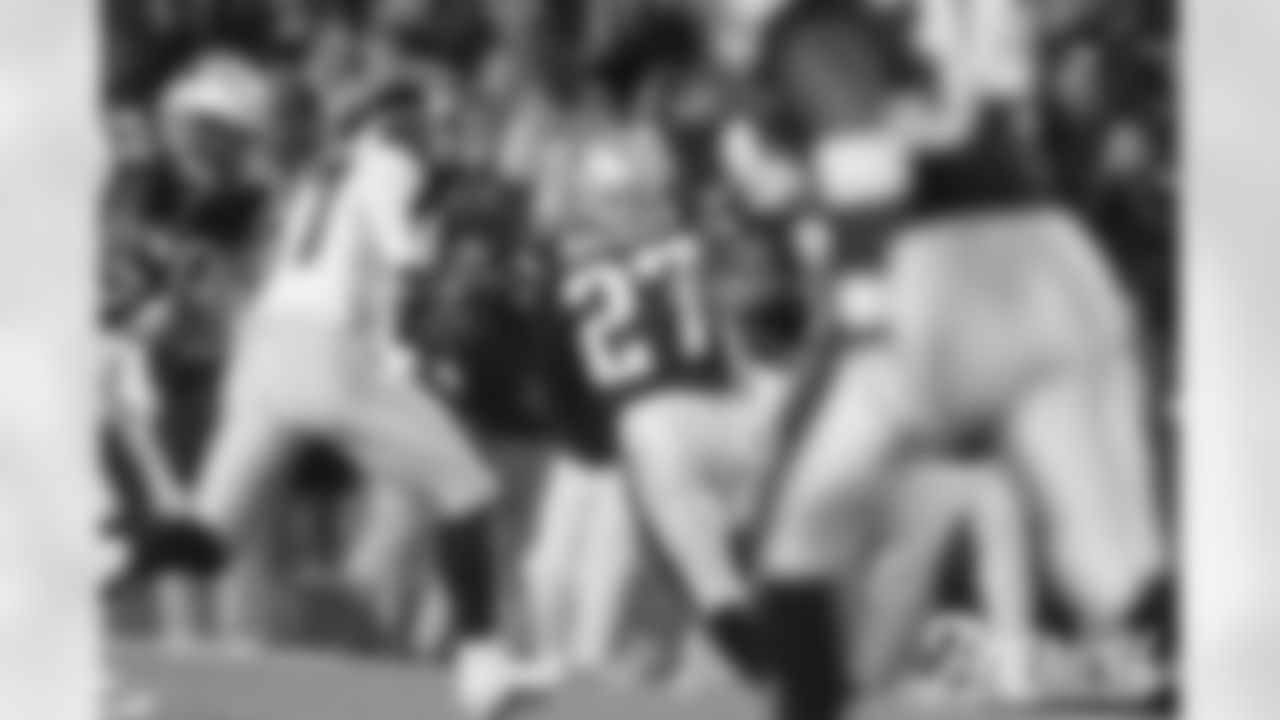
Terrell Buckley returns an interception 52 yards for a touchdown in the first quarter.
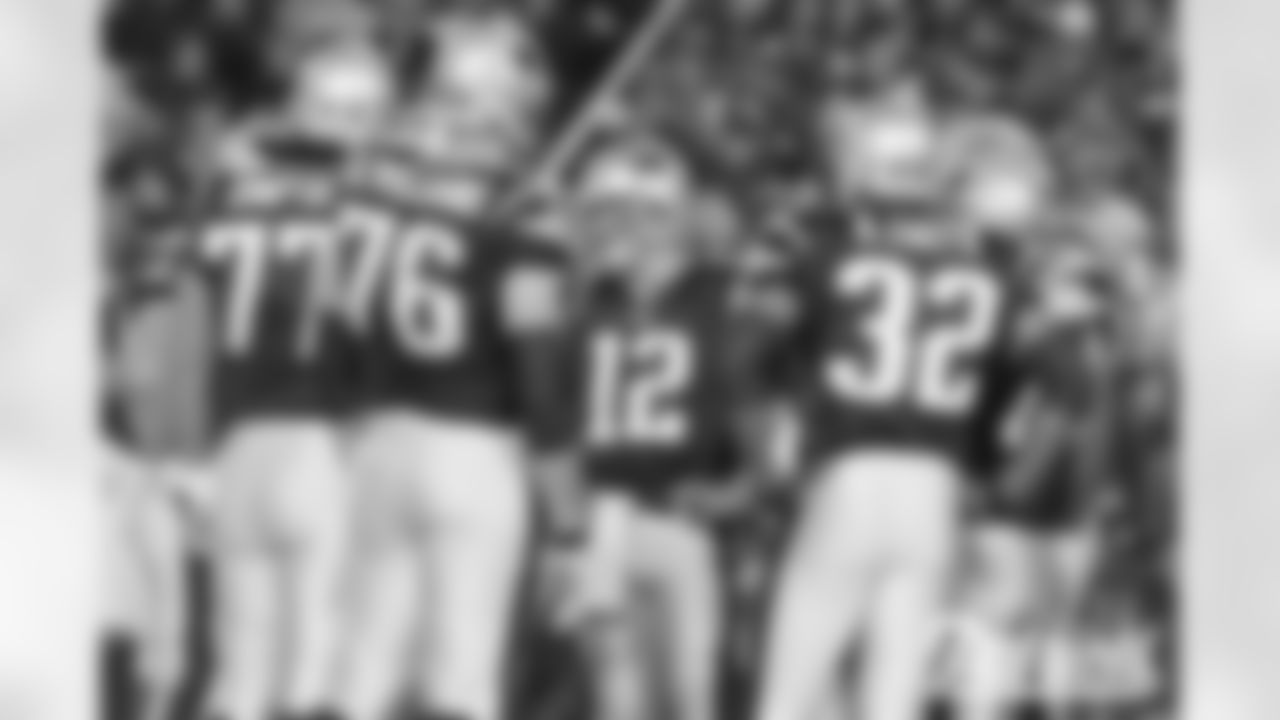
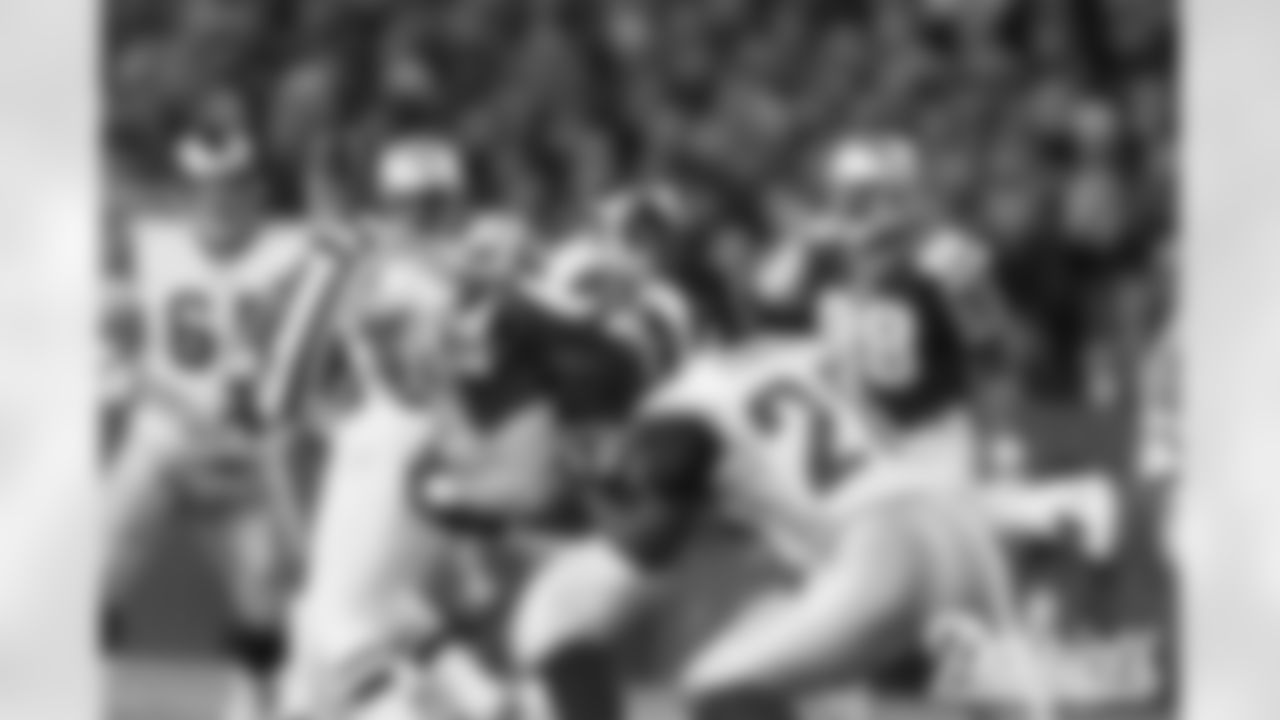
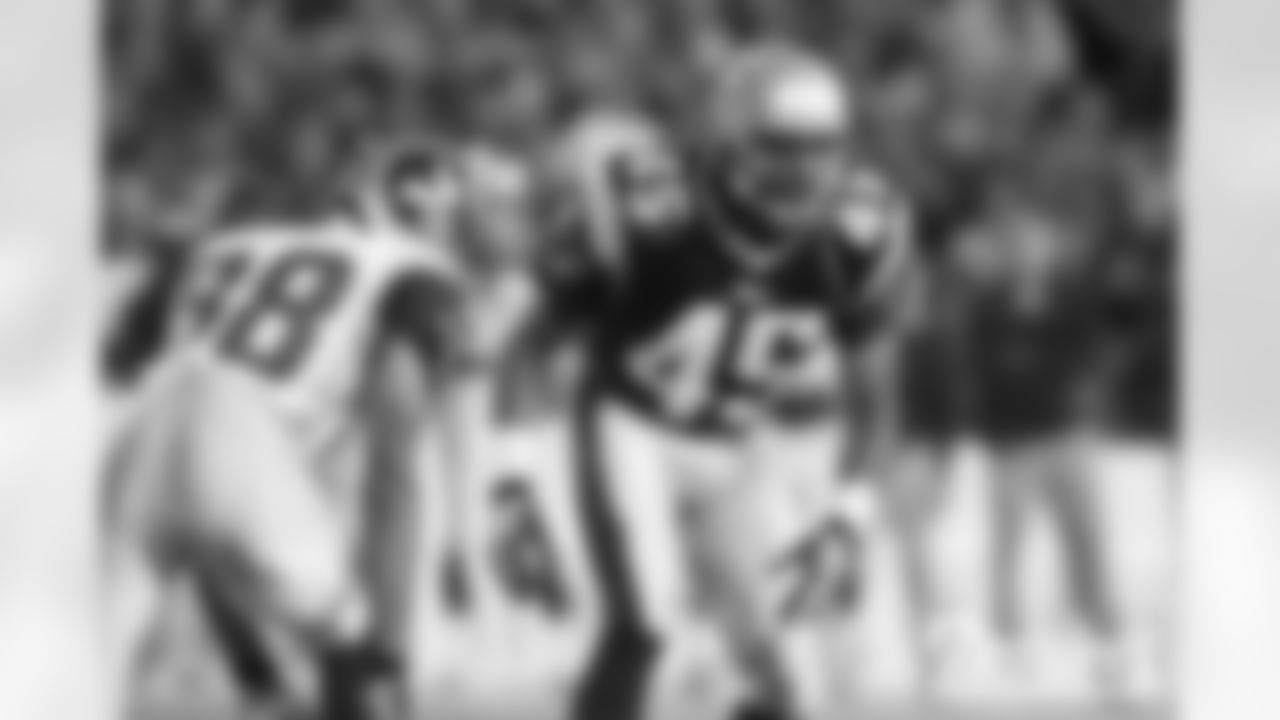
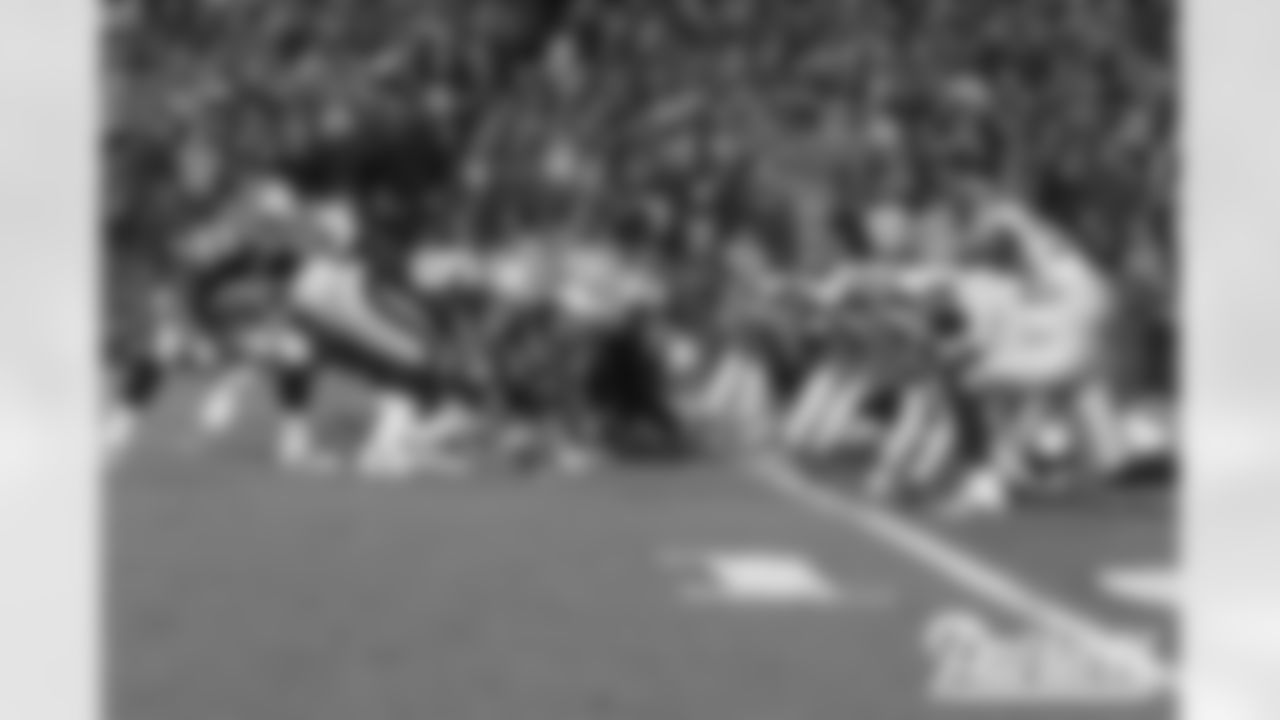
That's where the Patriots offense failed to hold up its end. Buckley's first-quarter interception tied the score, 7-7, and two plays later Bruschi's interception set up the offense at the Ram 40. But New England could only muster three points on a 33-yard Adam Vinatieri field goal following the takeaway. Against a team as high-powered as St. Louis, settling for field goals comes back to bite you.
Nothing bit harder than the Patriots second turnover of the game. New England took over leading, 10-7, with 8:45 left in the first half and marched from its own 32 to the St. Louis 4 in 11 plays and 6:33. But on the 12th play of the drive, running back Antowain Smith fumbled with linebacker London Fletcher recovering on his own 3-yard line.
Eight plays and 97 yards later, it was 14-10 Rams instead of 17-7 Patriots and one was only left to wonder about the effect of a probable 14-point swing. Certainly, the team knew the significance of that series.
"That was a critical turnover," Smith said. "I look at the outcome, 24-17, and I can't do anything but blame myself for losing the game."
While that may be somewhat extreme, the team felt the ripples of the red zone turnover and the resulting 97-yard scoring drive in which Warner completed all seven of his passes for 92 yards in as easy a touchdown march as you'll see.
"That 14-point swing was huge," wide receiver Troy Brown said. "We made crucial mistakes and didn't capitalize on our defensive turnovers."
"We had the end of the second quarter set up the way we wanted," Belichick said. "We ran the clock and were headed to the two-minute warning. If we run another play or two and score, there wasn't going to be much time on the clock. But when they got it back, they went down and scored. Every time they get the ball, it could be a momentum change. They don't care where they get the ball."
Those events were as big in the outcome as anything else in the game. The Rams came to Foxboro Stadium leading the league in turnovers with 24 and they gave it to the Patriots three times — two via Warner interceptions and a third on a fumbled snap. The Patriots needed those to have a chance.
But they couldn't afford to give it back three times, all of which were turned into St. Louis points. "You think about the plays after the game and it was a game we could have won," Patriots quarterback Tom Brady said. "They're a good team and when you play a good team, it's hard to make mistakes. But everyone is saying you have to play mistake-free and you're not trying to make mistakes. But at the same time, we were still in the game even though we made a lot of mistakes. So it's just about making the plays when you have the opportunity."
One such opportunity got away on another costly turnover, this one by Brady. Still trailing, 14-10, the Patriots saw the door creep open when Warner dropped a snap and defensive tackle Riddick Parker recovered the loose ball at the Rams 45.
But one play later, Brady returned the favor, throwing the ball into Fletcher's hands for the interception, giving the Rams the momentum back.
The Patriots defense stepped up and forced a field goal to stay within one score, at least momentarily. After a New England three-and-out, the Rams took a 24-10 lead on Warner's third touchdown pass, this one to running back James Hodgins, who was alone in the right flat and walked into the end zone to complete an 11-play, 75-yard drive.
The Patriots came back on their next possession with Brady finishing a 65-yard drive with a 10-yard touchdown pass to David Patten to close to 24-17 with 7:46 remaining.
But the St. Louis offense never gave the ball back to New England. On the Rams final possession, Marshall Faulk gained 33 of his 83 yards on six carries while adding an 18-yard completion on a huge third-and-seven play in which he caught a fade over linebacker Roman Phifer in a coverage mismatch.
Brady had an up-and-down night for New England, completing 19-of-27 attempts for 185 yards, one touchdown and two interceptions in a passing attack that seemed conservative, limiting his chances to go down the field. The Patriots rushing attack did little to help, managing just 51 yards on 20 attempts, as the Rams outgained New England, 482-230, and held the ball for 33:54 to just 26:06 for New England.
"We played against a real good team tonight," Brady said, "and I think we were right there with them. We have a whole locker room full of guys that are going to fight to the very end. We are a good football team; there's no doubt about that. We are right there with a team that's 7-1 and supposed to be the Super Bowl [favorite]."
And in the end, that is why the Patriots lost Sunday night. They proved they are close enough to the league's best team, but still short of winning a game against that caliber an opponent. But as a measuring stick, the Patriots held their own even if they dropped back to .500 at 5-5. For a rebuilding team, there is a measure of satisfaction in the performance even if the players and coaches can't admit that.
![2021-2001SBSO-PDC[1]](https://static.clubs.nfl.com/image/private/t_editorial_landscape_mobile/t_lazy/f_auto/patriots/x3sfqfsq1ciz1xy4yk0y.jpg)
2001: A Super Bowl Sound Odyssey
An aural history of the 2001 Super Bowl champion New England Patriots. The six-part podcast features interviews with over 20 players, coaches, media members and others who were there to witness this historic season, mixed with the iconic sounds that detailed every dramatic twist and turn of an unforgettable season. Every memorable moment from the 2001 Patriots season is revisited with new-found perspective 20 years later. It's a fresh and thorough look back at the team that started a football dynasty.
Subscribe and Download Links:




